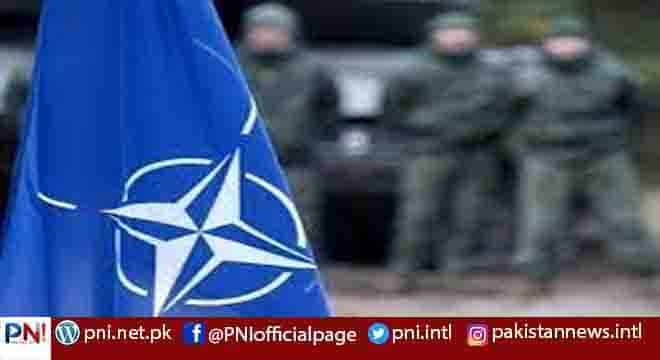Stockholm, June 29 (AFP/APP): Sweden may have clinched a surprise deal with Turkey paving the way for its NATO membership, but Kurds and leftwing parties expressed concern Wednesday about the concessions made to Ankara.
“We did not cave in to (Turkish President Recep Tayyip) Erdogan”, Swedish Foreign Minister Ann Linde said from the NATO summit in Madrid where the deal was announced.
“We will not agree to any extraditions unless there is proof of terrorist activity,” she told Swedish daily Aftonbladet.
“There’s no reason for Kurds to think that their human rights or democratic rights are at risk.”
The agreement, which ends Ankara’s veto of their membership bids, was signed by Finland, Sweden and Turkey in front of news cameras, and the Nordic countries’ relief was visible.
With NATO keen to display a unified front against Russia, there was mounting concern that the dispute would drag on for months, leaving the two countries vulnerable. NATO’s mutual defence clause does not apply to candidate countries.
– ‘Cards on the table’ –
The agreement addresses Ankara’s three main concerns with Finland and Sweden: the lifting of weapons export restrictions to Turkey, a hard line on Kurdish groups Ankara considers “terrorists”, and the extradition of Kurdish militants and supporters of the Gulen movement.
Finland and Sweden have blocked arms exports to Turkey since its 2019 military incursion into Syria.
Under the deal, “Finland and Sweden confirm that now there are no national arms embargoes”. Stockholm said it was “changing its national regulatory framework for arms exports in relation to NATO allies”.
Both Stockholm and Helsinki also confirmed they considered the PKK a terrorist organisation and agreed they would “not provide support to” its allies in Syria, the YPG/PYD.
They agreed to examine Turkey’s extradition requests “expeditiously and thoroughly”, and to take into account “information, evidence and intelligence provided by Turkey”.
But there is concern in some quarters that Sweden conceded too much.
They include representatives of the 100,000-strong Kurdish community, and two political parties that provide informal support in parliament to the ruling Social Democrats.
“Now we need to see the cards on the table,” Left Party leader Nooshi Dadgostar wrote on Twitter Wednesday.
“Is Sweden going to arm Turkey in its war of aggression against Syria? Which regime critics are going to be extradited?”
She warned of “the danger of putting Swedish foreign policy in the hands of despot Erdogan”.
– ‘Worried about Sweden’s Kurds’ –
The Green Party meanwhile called on Linde to appear before parliament’s foreign affairs committee to explain exactly what Sweden conceded, particularly regarding the weapons and extradition deals.
“I’m worried about Kurds in Sweden”, Kurdo Baksi, a Swedish social commentator of Kurdish origin and human rights activist, told AFP.
“Kurds who are not yet Swedish citizens and who have fled from oppression and persecution in Turkey are going to be worried about what will happen,” he said.
The ink had barely dried on the deal before Ankara on Wednesday demanded the extradition of 33 people from Finland and Sweden it accuses of “terrorism”.
Shiyar Ali, the Swedish representative of the Kurdish regions of northern Syria, said Sweden had “lost its fundamental principles of democracy, human rights and freedom” and its “reputation as a humane country and safe haven for those fleeing from terrorism (and) oppression”.
Amineh Kakabaveh meanwhile, a Swedish member of parliament of Kurdish origin, called the deal with Turkey “a sad and cynical policy that does not strengthen the work for peace and democracy”. Kakabaveh formerly represented the Left Party but is now an independent.
Others were sceptical that Ankara would stick to its end of the bargain.
“I can just hope that Turkey will not change its view along the way of negotiations and ratification,” former prime minister Carl Bildt wrote on Twitter.
“There has been a disturbing element of unpredictability over its behavior.”
The parliaments of all 30 NATO members, including Turkey, must ratify Finland’s and Sweden’s membership bids before they can become full members.
Follow the PNI Facebook page for the latest news and updates.









